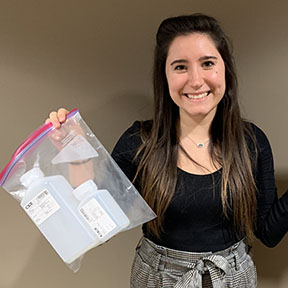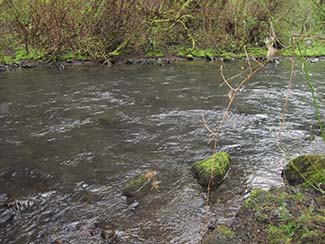What people are asking Sarah Stalder, Water Quality Program Coordinator, about COVID-19 and their drinking water:
What essential sampling work is being performed during the pandemic crisis? |
 |
|
Protection of public health is the Joint Water Commission’s (JWC) number one priority. Drinking water produced by the JWC remains safe and protected against contaminants, including COVID-19. The water our customers drink and use every day is tested regularly to ensure every drop is safe and of the highest quality. JWC water quality staff routinely samples the water to test for harmful bacteria, chemicals, nutrients, and other contaminants. They also check physical characteristics such as pH, temperature, and hardness. Staff also perform additional testing for metals, algae, and other substances recommended for testing by the U.S. Environmental Protection Agency (EPA). Sample results found at: http://jwcwater.org/water-quality/testing-results/. |
|
Where are staff collecting samples? |
|
|
JWC water quality staff collect samples all the way from the headwaters and tributaries of the Tualatin River to both of our reservoirs (Barney Reservoir and Scoggins Reservoir), to the water treatment plant and all throughout the treatment process. The JWC has robust sampling plans that encompass the drinking water source area, to ensure that the plant is prepared to treat almost all threats to water quality. Sampling at the plant has also shown that the treatment techniques used to ensure clean and safe drinking water are effective and continue to produce water that meets and exceeds all drinking water standards set by the U.S. EPA and the Oregon Health Authority. |
|
What if I am concerned with water quality? Can JWC staff assist me during this time? |
|
|
If you are experiencing water quality issues at your tap, please contact your respective water provider listed below. Though staff may not be able to perform in-house water quality testing at this time, they are always happy to discuss with customers any water quality concerns by phone or e-mail. |
|
 |
Sarah Stalder has a Bachelor of Science in Biology and a minor in Chemistry from the University of Dayton in addition to a Masters of Science in Biology from Idaho State University, where she studied water quality in natural and built environments. Sarah has worked for the JWC water quality group for almost two years. |
